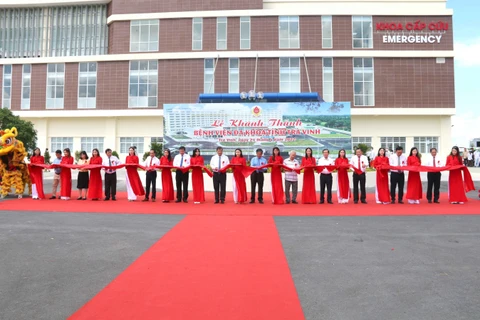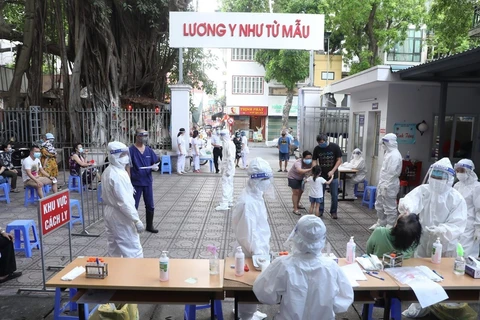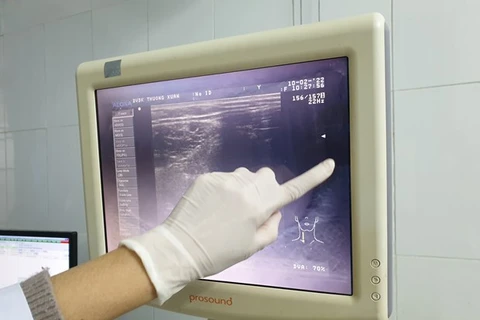 Commune-level health workers participate in the management and treatment of F0 patients at home. (Photo: Vietnamplus)
Commune-level health workers participate in the management and treatment of F0 patients at home. (Photo: Vietnamplus) Hanoi (VNA) - Facing the "storm" of COVID-19, Vietnam has received a lot of "blood and bone" experiences in disease prevention.
To have a deeper insight into the matter, VietnamPlus took an interview with Associate Professor Phan Le Thu Hang - Deputy General Director of the Planning and Finance Department cum Director of the Project Management Board of Grassroots Health System Investment and Development under the Ministry of Health.
Reporter: Dear Associate Professor, it seems that there are now two opposing views on the grassroots health system, especially commune/ward health stations in the prevention of the COVID-19 pandemic. What is your opinion?
Associate Professor Phan Le Thu Hang: The two opinions you mean above correspond to the two phases of COVID-19 pandemic prevention in Vietnam, which have inconsistent results.
In 2020, Vietnam was considered by the international community as the most successful country in effective and low-cost COVID-19 prevention and control. The number of cases as well as the number of deaths from COVID-19 per one million people in Vietnam was among the lowest in the world.
On the contrary, during the 4th outbreak of the pandemic in 2021, a strong and serious outbreak, the health system was overloaded in southern provinces and cities, even though the health crisis was localized. The operation of the grassroots health system in localities, where the COVID-19 epidemic broke out quickly and seriously, revealed many limitations in both technical capacity and coordination. The situation would have been much worse without the timely support from the Ministry of Health, the Ministry of National Defense and many localities across the nation.
 Associate Professor Phan Le Thu Hang - Deputy General Director of the Department of Planning and Finance cum Director of the Project Management Board of Grassroots Health System Investment and Development under the Ministry of Health. (Photo: Vietnamplus)
Associate Professor Phan Le Thu Hang - Deputy General Director of the Department of Planning and Finance cum Director of the Project Management Board of Grassroots Health System Investment and Development under the Ministry of Health. (Photo: Vietnamplus) Reporter: With what happened during the last outbreak of the COVID-19 pandemic, do you think the healthcare sector should do something with the grassroots health?
Associate Professor Phan Le Thu Hang: The health system had to do two important tasks at one time, which were to take preventive measures to deal with multiple outbreaks in the community, and take measures to treat a large number of patients. In this context, the limitations of the grassroots health network were clearly revealed.
How to deal with the limitations is a matter of great importance. I think in the coming time, the government and the health sector will have to take more measures to solve the problem.
Reporter: In your opinion, what strategic changes should be made for the grassroots health system in the coming period?
Associate Professor Phan Le Thu Hang:
To meet the demand for developing the grassroots healthcare network, the sector is implementing a project to renovate the network nationwide.
We must comprehensively renovate the grassroots health network, from building technical infrastructure, developing high-quality human resources and organizational structure, to creating new service delivery models.
The lack of investment is one of the most important reasons leading to the failure of the grassroots health network to meet the capacity of demand, especially in difficult situations or special public health emergencies.
Based on the evaluation of the pilot commune health stations (CHS), the MoH has developed a plan to upgrade healthcare stations and invest in medical equipment.
Once the infrastructure is upgraded, training has been carried out and health insurance payment issues have been resolved, we hope the healthcare system will be improved./.






















